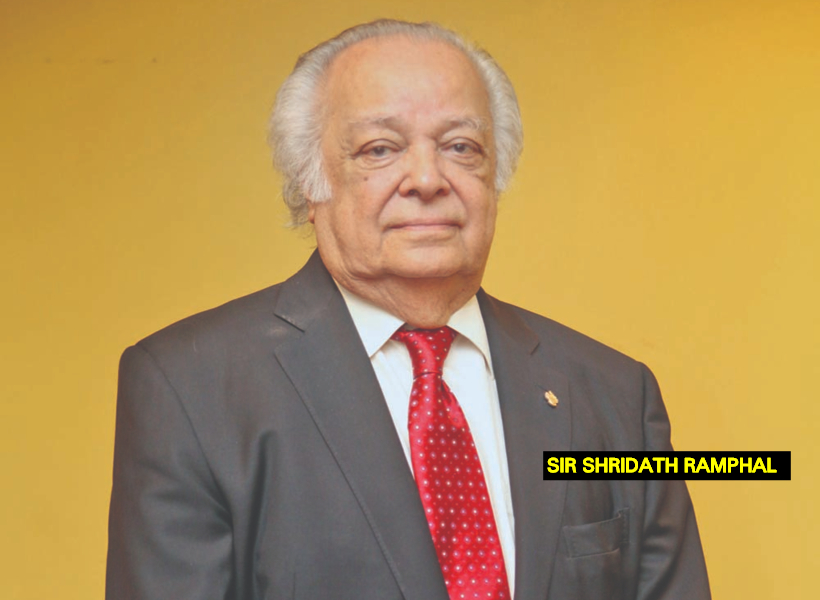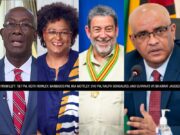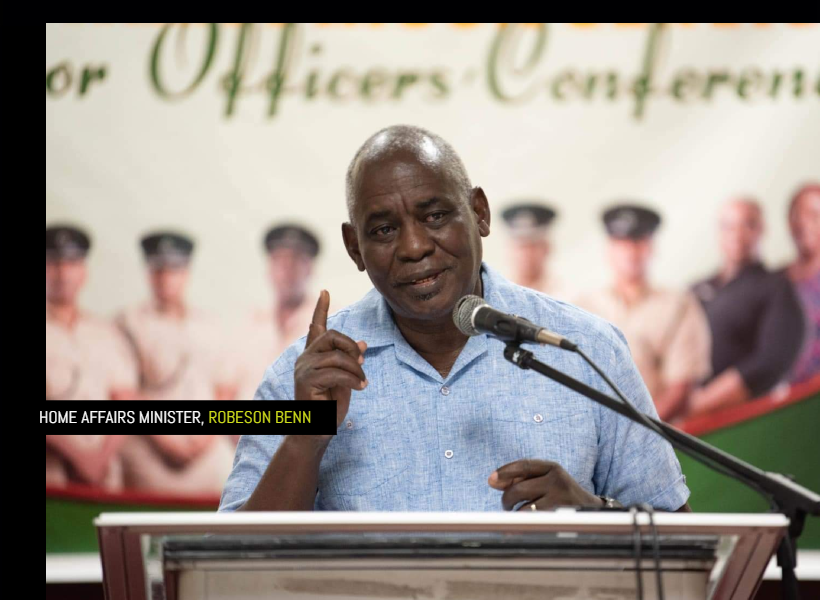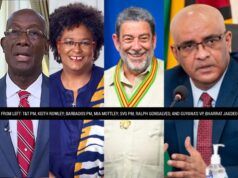By Feona Morrison
The International Court of Justice (ICJ) this morning concluded hearing arguments on the question of its jurisdiction to hear the case on the validity of the Arbitral Award of 3 October 1899 (Guyana v. Venezuela) regarding the boundary between Venezuela and then British Guiana, now Guyana. The case is premised on border dispute between Guyana and Venezuela in which the Spanish-speaking country has laid claim of Guyana’s largest county Essequibo, a former Dutch colony.
While the Court did not disclose a specific date as to when it will hand down its ruling, it’s President Abdulqawi Yusuf, said that parties will be notified of same.
This morning the ICJ which has its seat in the Hague, Netherlands, entertained arguments on the issue of the Court’s jurisdiction from Guyana’s delegation of distinguished international lawyers including Sir Shridath Ramphal, former Commonwealth Secretary General; Payam Akhavan, Professor at McGill University in Montreal; Paul Reicher, British-French lawyer; Philippe Sands and French lawyer Alain Pelley, and others.

The Government of the Bolivarian Republic of Venezuela has claimed, in a letter to the ICJ, that the Secretary-General of the United Nations (UN), António Guterres exceeded his authority under the 1966 Geneva Agreement, when he referred the case to the ICJ, and therefore, lacks jurisdiction to adjudicate Guyana’s lawsuit. On this basis, Venezuela has indicated that it will not participate in the proceedings.
The proceedings which were held virtually amid the COVID-19 pandemic was broadcast live . According to ICJ’s President, Abdulqawi Yusuf, this was the Court’s first hearing of this nature as it commits to keeping the wheels of justice turning despite the threats posed by the pandemic.
Guyana’s legal team contends that both Guyana and Venezuela accepted the 1966 Geneva Agreement over the 1899 Arbitrary Award, and it must have any issues arising therein settled by the ICJ. Sir Ramphal expressed that it is very unfortunate that Venezuela has chosen not to participate in the proceedings. According to him, for over 60 years Venezuela has been trying and has failed to override the provision of the Agreement, and Guyana’s sovereignty.
Under the Agreement, Sands submitted that Guyana and Venezuela vested exclusive and irrevocable authority in the Secretary General under Article IV (2) to chose another means of resolution. According to him, the Secretary General’s choice of resolution was reasonable, sensable and based on legal advice and made having regards to the principles of international law. The lawyer submitted that Guyana expresses the hope that the Court will not undercut the Secretary General’s approach, and will give effect to his decision in referring the case to the ICJ, the principal judicial organ of the UN.
The Agreement to resolve the controversy over the Frontier between Venezuela and British Guiana, commonly known as the Geneva Agreement, is a treaty signed in Geneva, Switzerland, on February 17, 1966 that resolved the disagreement between Venezuela and the United Kingdom regarding the border between Venezuela and British Guiana. Guyana argues that pursuant to Article IV (2) of the Agreement, the Secretary General is empowered to decide on the settlement to be employed should there be any issues arising from that Agreement.
According to Article IV (2): If, within three months of receiving the final report, the Government of Guyana and the Government of Venezuela should not have reached agreement regarding the choice of one of the means of settlement provided in Article 33 of the Charter of the United Nations, they shall refer the decision as to the means of settlement to an appropriate international organ upon which they both agree or, failing agreement on this point, to the Secretary-General of the United Nations. If the means so chosen do not lead to a solution of the controversy, the said organ or, as the case may be, the Secretary-General of the United Nations shall choose another of the means stipulated in Article 33 of the Charter of the United Nations, and so on until the controversy has been resolved or until all the means of peaceful settlement there contemplated have been exhausted.
Arguing that the Agreement is “valid and binding” on both parties, Guyana contends that the ICJ has authority to preside over the case as the Court’s jurisdiction is derived out of the Agreement and the decision of the Secretary. In his submissions, Reicher stressed that Venezeula’s arguments are not only “erroneous and illogical” but “demonstrably wrong.” According to him, Venezuela has conveniently chosen not to consider the provisions of the Articles beyond Articles III of the Agreement.
The lawyer opined that the interpretation adapted by Venezuela is like someone who has stopped reading the book of Genesis after the fifth day. In arguing that Venezuela’s arguments on the ICJ lacking jurisdiction is without merit, Reicher said, “The Geneva Article does not end after Article 3. The Secretary General did not choose adjuication erroenously.” It is against this backdrop, he stated the Court must reject Venezuela’s arguments that the Arbitral Award of 3 October 1899 is null and void.
Guyana has requested of the ICJ to confirm the legal validity and binding effect of the Award, and that same is a full, perfect, and final settlement of all questions relating to determining the boundary line between the colony of British Guiana and Venezuela. Guyana asserts that between November 1900 and June 1904, a joint Anglo – Venezuelan Boundary Commission had “identified, demarcated and permanently fixed the boundary established by the Award” before the signing of a Joint Declaration by the Commissioners on 10 January 1905 (referred to as “the 1905 Agreement”).
Guyana further contends that, in 1962, for the first time, Venezuela suddenly contested the Award as “arbitrary” and “null and void”. This contention was highly contested by the British, Payam reminded.
Payam submitted to the ICJ the 1905 map demarcating Guyana’s boundary was exceptionally accurately.
Venezuela’s actions, according to Guyana, had led to the signing of the Agreement to resolve the controversy between Venezuela and the United Kingdom of Great Britain and Northern Ireland over the frontier between Venezuela and British Guiana at Geneva on 17 February 1966, which “provided for recourse to a series of dispute settlement mechanisms to finally resolve the controversy”.
Guyana further submitted that the Geneva Agreement had authorized the United Nations Secretary-General to decide which appropriate dispute resolution mechanism to adopt for the peaceful settlement of the dispute, in accordance with Article 33 of the United Nations Charter.
On 30 January 2018, Secretary-General António Guterres determined that the good offices process had failed to achieve a peaceful settlement of the controversy. He then took a formal and binding decision, under Article IV, paragraph 2 of the Agreement, to choose a different means of settlement under Article 33 of the Charter to have the dispute referred to the ICJ for final settlement.
In closing, Sir Ramphal asked the Court to find that it has jurisdiction to hear the matter, and to proceed with hearing the merits of the case, and said it is an honour to be associated with this historic hearing.
The ICJ, which has a bench of 15 judges, has a twofold role: first, to settle, in accordance with international law, through judgments which have binding force and are without appeal for the parties concerned, legal disputes submitted to it by States; and, second, to give advisory opinions on legal questions referred to it by duly authorized United Nations organs and agencies of the system.
Guyana has requested the ICJ to adjudge and declare the following:
(a)The 1899 Award [was] valid and binding upon Guyana and Venezuela, and the boundary established by that Award and the 1905 Agreement [was] valid and binding upon Guyana and Venezuela;
(b)Guyana enjoy[ed] full sovereignty over the territory between the Essequibo River and the boundary established by the 1899 Award and the 1905 Agreement, and Venezuela enjoy[ed] full sovereignty over the territory west of that boundary; Guyana and Venezuela [were] under an obligation to fully respect each other’s sovereignty and territorial integrity in accordance with the boundary established by the 1899 Award and the 1905 Agreement;
(c)Venezuela [had to] immediately withdraw from and cease its occupation of the eastern half of the Island of Ankoko, and each and every other territory which [was] recognized as Guyana’s sovereign territory in accordance with the 1899 Award and 1905 Agreement;
(d)Venezuela [had to] refrain from threatening or using force against any person and/or company licensed by Guyana or engage in economic or commercial activity in Guyanese territory as determined by the 1899 Award and 1905 Agreement, or in any maritime areas appurtenant to such territory over which Guyana ha[d] sovereignty or exercise[d] sovereign rights, and shall not interfere with any Guyanese or Guyanese-authorised activities in those areas;
(e) Venezuela [was] internationally responsible for violations of Guyana’s sovereignty and sovereign rights, and for all injuries suffered by Guyana as a consequence.











